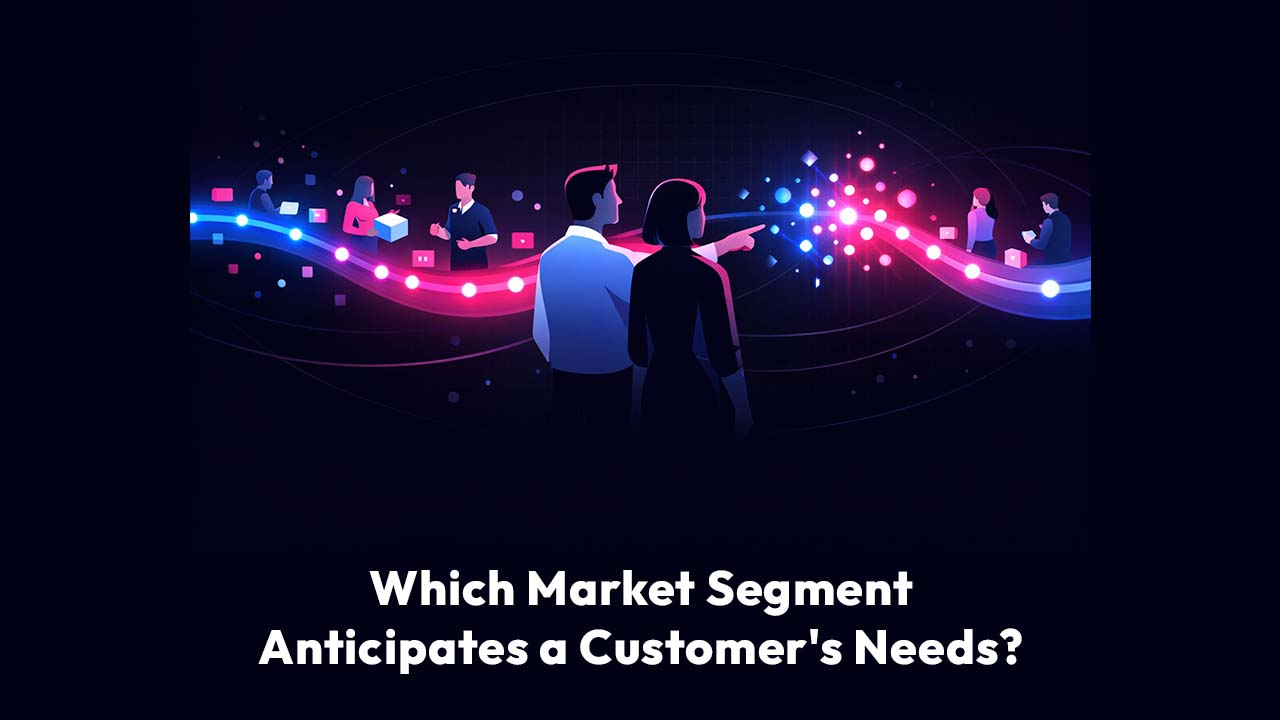What Is a Data Intelligence Platform?
A data intelligence platform is a system that helps your business make sense of all its data—from spreadsheets and CRMs to cloud apps and IoT devices—by unifying, cleaning, and analyzing it through AI and automation. It's where data finally stops being noise and starts telling stories.
Imagine having one dashboard that not only shows where your data comes from but explains why it matters and what you should do next. That's what data intelligence is designed for: turning raw information into real insight.
Expanded Explanation
In practical terms, a data intelligence platform centralizes all your data sources (structured and unstructured) into one secure, searchable environment. It adds context through metadata, ensures governance through access rules, and uses artificial intelligence to uncover trends you might miss manually.
It's not a replacement for your BI or analytics tools—it's the foundation beneath them. While BI tells you what happened, data intelligence tells you why it happened and how to respond.
Related Information
Companies like Databricks, Oracle, and Secoda have redefined this space by embedding AI assistants, automated lineage tracking, and natural-language querying. These features make data accessible to non-technical users while maintaining compliance and consistency across departments.
Why Businesses Are Suddenly Talking About Data Intelligence
Ten years ago, companies bragged about being "data-driven." Today, that phrase alone doesn't cut it. Every business collects data—but few know what to do with it.
Here's the surprising truth: over 60% of an analyst's time is spent cleaning and preparing data, not analyzing it. The result? Delayed insights, missed opportunities, and frustrated teams.
Data intelligence platforms solve that bottleneck by automating the grunt work. They give your analysts and decision-makers more time to think strategically instead of manually mapping spreadsheets or reconciling data from five different dashboards.
How Does a Data Intelligence Platform Work?
It works by connecting all your data sources, enriching that data with context, and then making it searchable and usable through AI-driven interfaces.
Let's break it down.
1. Data Ingestion
The platform integrates with CRMs, ERPs, cloud databases, and APIs, pulling in structured and unstructured data from every department.
2. Data Governance
It enforces quality, lineage, and compliance rules. Think of this as your company's data "rulebook." Who can access what? How long should it be stored? Is it compliant with GDPR or SOC 2?
3. Metadata Management
Here's where the magic happens. Metadata—data about your data—is automatically captured and analyzed. This gives every asset a digital footprint: origin, owner, quality score, and usage history.
4. Data Enrichment
AI models analyze relationships between data points, identify anomalies, and suggest improvements. It's like having a smart analyst that never sleeps.
5. Discovery and Analytics
With natural-language search and visualization tools, anyone—yes, even non-technical users—can ask questions like "Show me this quarter's churn rate by region" and get an instant answer.
What Are the Core Components of a Data Intelligence Platform?
Here's a quick reference table summarizing the core elements most modern platforms share.
How Is It Different from Business Intelligence or Business Analytics Platforms?
This is one of the biggest misconceptions in the analytics world.
A business intelligence platform—like Looker, Tableau, or Power BI—focuses on visualizing and analyzing historical data. You get dashboards, charts, and KPIs that explain what happened.
A data intelligence platform, on the other hand, manages and contextualizes data before it reaches BI tools. It integrates governance, cataloging, and AI automation so that the insights coming out of BI are accurate, relevant, and actionable.
But here's where it gets interesting: some newer platforms are blurring these lines entirely. They're combining the discovery and enrichment capabilities of data intelligence with the investigative power of advanced analytics—creating what some call "augmented intelligence" platforms.
Take Scoop Analytics, for instance. Rather than forcing users to choose between governance and agility, it enables business users to run sophisticated analyses independently while maintaining complete data governance. You get the benefits of both worlds: centralized control with decentralized discovery.
In Short
- BI = Presentation layer (insight visualization)
- Data Intelligence = Foundation layer (data quality, governance, automation)
- Augmented Intelligence = Investigation layer (AI-powered discovery and ML)
When all three work together, you get a complete data lifecycle: collection → governance → investigation → visualization → insight → action.
What's the Leading Business Intelligence Platform in Data Analytics Today?
This question pops up in nearly every executive meeting. The truth? There's no one-size-fits-all answer—but a few leaders consistently rise above.
According to recent industry analyses:
Each of these platforms approaches intelligence from a different angle.
If your business is cloud-heavy and AI-driven, Databricks leads. If you need strong governance and compliance, Collibra or Oracle might fit. If you want ease of use and fast adoption across teams, Secoda offers a simple, modern interface. If you need to democratize sophisticated ML analysis without hiring data scientists, Scoop Analytics bridges the gap between spreadsheet simplicity and enterprise-grade machine learning.
The key is matching your operational maturity and user base to the right solution. A platform that works beautifully for a Fortune 500 data team might overwhelm a growth-stage company with limited technical resources.
Why Data Intelligence Matters More Than Ever
Let's get real. The amount of data created every day is mind-blowing—more than 328 million terabytes daily. Yet, most of it sits idle, uncategorized, or siloed.
Data intelligence platforms help break that cycle.
They don't just centralize data—they make it usable. They reveal how customer behaviors connect with supply chain delays, or how financial data correlates with marketing ROI.
That's what operational leaders crave: clarity.
When everyone—from your CFO to your warehouse manager—works from the same, trusted source of truth, decisions stop being reactive and start becoming strategic.
The Role of AI in Data Intelligence Platforms
Artificial intelligence isn't just a buzzword here—it's the backbone.
Modern platforms use AI models to learn from your data's semantics. They understand relationships, patterns, and even corporate terminology.
Here's how AI transforms traditional data operations:
- Automated Data Cataloging: AI identifies new data assets and tags them without human input.
- Natural-Language Querying: Ask questions in plain English—"Which region saw the fastest growth last quarter?"—and get instant answers.
- Predictive Analytics: ML algorithms forecast trends based on historical behavior.
- Anomaly Detection: AI flags inconsistencies before they become business problems.
The Evolution of Explainable AI
But here's where the field is getting really interesting: explainable AI.
Traditional machine learning often creates "black box" models—powerful predictions with no clear reasoning. That's a problem when you're trying to make million-dollar decisions or maintain regulatory compliance.
The next generation of platforms solves this with what some call "three-layer AI architecture":
- Layer 1: Automatic data preparation (cleaning, normalization, feature engineering)
- Layer 2: Sophisticated ML execution (decision trees, clustering, classification)
- Layer 3: Business-language translation (converting complex algorithms into actionable insights)
This approach gives you the best of both worlds: PhD-level data science explained in terms your marketing manager can understand.
For instance, instead of showing you an 800-node decision tree (technically accurate but practically useless), the system might tell you: "High-risk churn customers share three characteristics: more than 3 support tickets in 30 days, no login activity for 30+ days, and less than 6 months tenure. Immediate intervention on this segment can prevent 60-70% of predicted churn."
That's intelligence you can act on.
The result is a self-optimizing data ecosystem that evolves as your organization does.
Key Benefits of a Data Intelligence Platform
Let's summarize the advantages for business operations leaders.
- Faster Insights: Reduced time spent on manual data prep and discovery.
- Higher Data Quality: Automatic lineage and validation minimize errors.
- Improved Compliance: Built-in governance frameworks meet regulatory standards.
- Operational Efficiency: Shared visibility cuts redundant reporting cycles.
- Scalability: Integrates seamlessly across cloud, hybrid, and on-prem environments.
- Cultural Shift: Empowers a true data-driven mindset across departments.
- Business User Independence: Advanced analytics without requiring technical expertise.
When implemented well, a data intelligence platform doesn't just support operations—it transforms them.
How to Choose the Right Business Analytics Platform
When evaluating business analytics platforms or intelligence solutions, ask these key questions:
- Does it unify my data sources? You need a system that handles structured (CRM, ERP) and unstructured (emails, social media) data.
- Can it scale with my growth? Ensure the architecture supports multi-cloud or hybrid environments.
- Does it support AI automation? Features like metadata tagging, anomaly detection, and NLP drastically improve efficiency.
- How intuitive is the interface? If non-technical users can't adopt it, your ROI drops. Can a marketing manager ask questions without calling IT?
- Is it compliant and secure? Check for SOC 2, GDPR, and data encryption capabilities.
- What's the actual time to value? Some platforms take six months to implement. Others deliver insights in days. That difference compounds.
- Does it investigate or just query? Modern platforms should do more than show you what happened—they should help you understand why and what to do about it.
- What's the true total cost? Look beyond license fees. Factor in implementation costs, required FTEs, training expenses, and per-query charges.
- What's the community and support like? Strong user communities and documentation accelerate learning curves.
Frequently Asked Questions
What's the difference between data intelligence and data analytics?
Answer: Data analytics focuses on analyzing past performance. Data intelligence governs, enriches, and prepares that data for analysis—ensuring it's accurate, contextual, and trustworthy. Think of intelligence as the foundation that makes analytics reliable.
Is a data intelligence platform only for large enterprises?
No. Modern cloud solutions scale down efficiently for SMBs. Startups often benefit the most because they can build a data culture right from the start. Some platforms even offer free tiers for small teams to prove value before scaling.
Can I integrate my current BI tools?
Absolutely. Most platforms connect with Tableau, Power BI, or Looker through APIs or built-in connectors. The goal isn't replacement—it's enhancement.
How long does implementation take?
Depending on complexity and the platform you choose, anywhere from a few days for quick-start solutions to several months for full enterprise rollout. Cloud-native platforms designed for business users can often deliver first insights within 30 seconds of connecting a data source.
What ROI can I expect?
Companies typically see productivity improvements of 30–50% in data analysis workflows within six months of deployment. Marketing teams report 200-300% ROI improvements through better targeting. Customer success teams reduce churn by 25-35% with predictive analytics.
What happens when my data structure changes?
This is a critical question many skip. Traditional platforms often break when you add new columns or change data types—requiring weeks of IT work to rebuild semantic models. Modern intelligence platforms handle schema evolution automatically, adapting to changes without disruption.
Conclusion
If business intelligence helped you understand the past, data intelligence helps you shape the future.
For operations leaders, it's not about collecting more data—it's about using what you already have, intelligently. The businesses leading in efficiency, profitability, and innovation are the ones that treat their data as a living ecosystem, not a static archive.
The question isn't whether you need a data intelligence platform. It's how fast you can deploy one before your competitors do.
Because in today's data-driven economy, intelligence isn't optional—it's survival.
And here's the real insight: the companies winning aren't necessarily the ones with the most sophisticated data science teams. They're the ones that democratized access to sophisticated analysis, empowering every employee—from the sales rep to the CMO—to discover patterns, predict outcomes, and act on insights independently.
That's the future of data intelligence. Not more tools for specialists, but better intelligence for everyone.








.png)